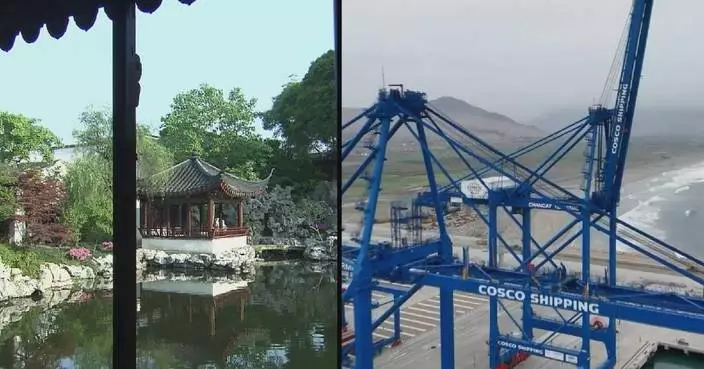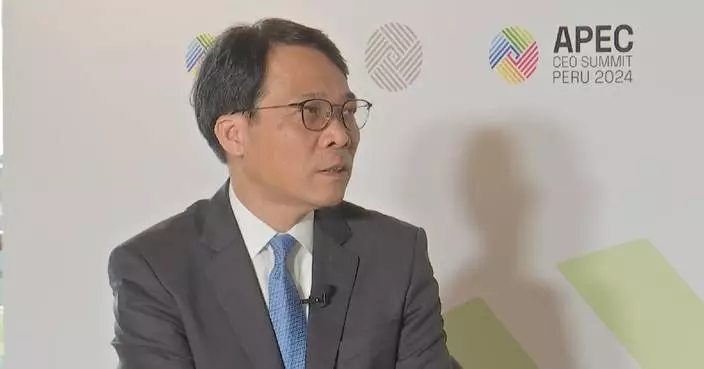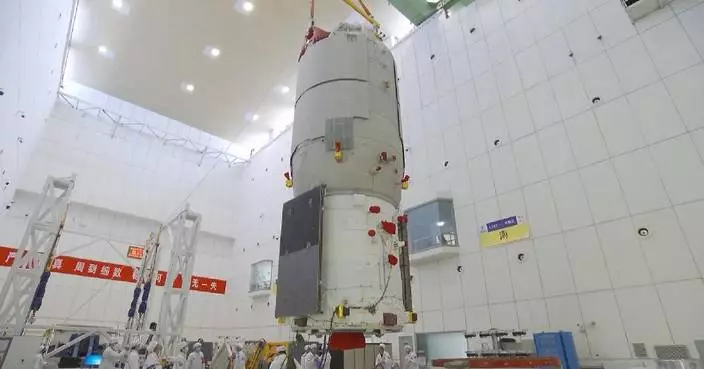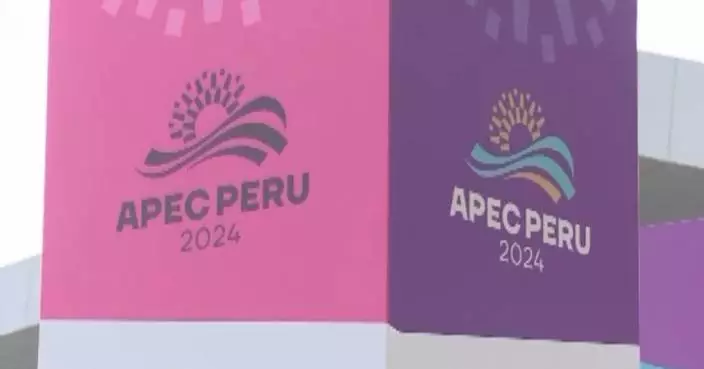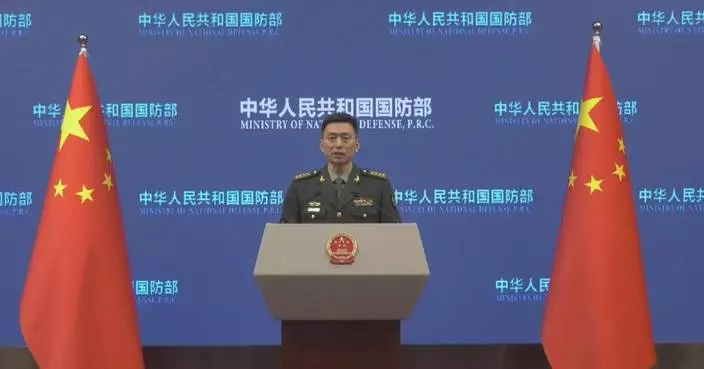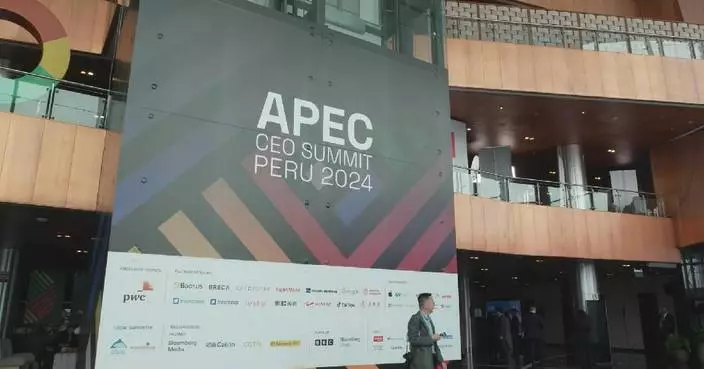A Russian scholar said that the initiatives proposed by Chinese President Xi Jinping in his written address at the 2024 APEC CEO Summit sends out a clear message of the need to establish a global economic system based on equality and balanced development among all countries.
The speech, delivered by Chinese Minister of Commerce Wang Wentao on President Xi's behalf on Friday at the Asia-Pacific Economic Cooperation (APEC) CEO Summit 2024 in Peruvian capital Lima, called for efforts to steer economic globalization in the right direction, jointly promoting a universally beneficial and inclusive economic globalization to the benefit of various countries and communities.
Yuri Pikalov, a professor from the Pedagogical Institute of Russia's Pacific National University and a doctor of historical sciences, shared his insights in an interview with the China Global Television Network (CGTN) on Saturday. He said the core message of Xi's speech sought to extend an "invitation" to all countries to work together to find solutions at a time when the global economy is facing severe challenges.
"The written speech delivered by the Chinese leader is an invitation to dialogue as the global economy faces severe challenges. President Xi Jinping invites all countries to exchange views fairly and rationally, in order to solve existing problems. This will be an important dialogue on the current situation of world economy and politics," said Pikalov.
The scholar called out the often imbalanced nature of international development with some countries dominating the global order for their own interests, and stressed that only through the common development of all nations can global problems be properly addressed.
"The initiatives proposed by President Xi aim to establish a new world order based on modern economic development in which all countries are equal in their own development and contribute to the development of the world. Until now, the development of the world economy has followed a fixed pattern, that is some certain countries order others and impede their independent development. Therefore, President Xi proposed to change the situation, so that equality can become a baseline of global economic development. If the economies of all countries can develop well, issues concerning hunger, disease and ecology can be solved, and the world will forge ahead on a path to better, more prosperous and more wealthy development," he said.
This year's APEC CEO Summit, held from Wednesday to Friday, brought together over 1,000 chief executives, thought leaders and government representatives to share insights and exchange views on the region's most critical challenges under the theme, "People, Business, Prosperity".
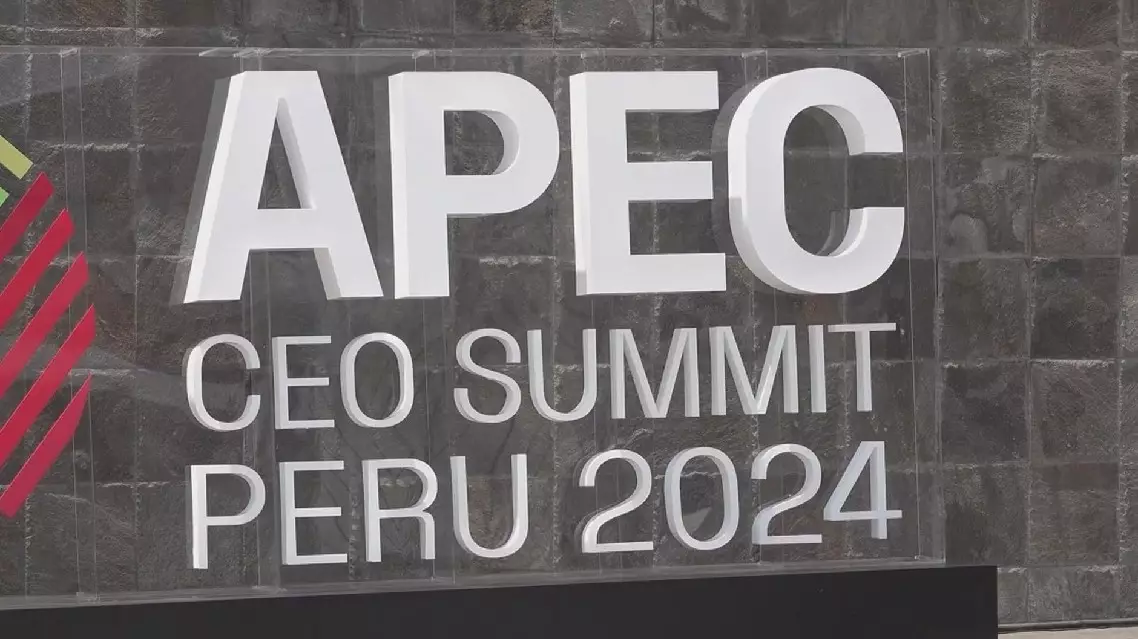
President Xi's initiatives aim to build equal, balanced global economic system: Russian scholar
Chinese Foreign Minister Wang Yi called on Canada to lift discriminatory restrictions on Chinese products during a meeting with his Canadian counterpart Melanie Joly in Lima, Peru's capital on Friday.
Wang, also a member of the Political Bureau of the Communist Party of China Central Committee, said that during Joly's recent visit to China, the two sides had an in-depth exchange of views on improving and developing China-Canada relations, made new progress and released positive signals.
However, the development of China-Canada relations still experiences disturbances from time to time, Wang noted, adding that it is necessary for the two sides to maintain communication, properly handle differences and maintain the momentum of continuous improvement.
Wang said China and Canada have different political systems, which is a choice made by their respective people and rooted in each other's history and culture. Both sides should adhere to mutual respect and seek mutual benefit and win-win results. The two countries share extensive common interests, and do not have conflicts of fundamental interests.
Wang expressed the hope that Canada will work with China in the same direction, view China's development objectively and rationally, and do more things that are conducive to the development of bilateral relations and the enhancement of mutual understanding and trust between their people of the two countries, so as to promote cooperation and reduce differences between the two sides.
He noted that Canada's imposition of high tariffs on Chinese electric vehicles violates the spirit of free trade and is not conducive to the healthy development of economic and trade cooperation between the two countries. Canada should earnestly abide by the World Trade Organization rules and lift discriminatory restrictions on Chinese products.
Wang stressed that the Taiwan question concerns China's sovereignty and territorial integrity, and the one-China principle is the universal consensus of the international community and an important part of the post-World War II international order, which should not be challenged.
He expressed the hope that Canada will fully understand the high sensitivity of the Taiwan question and earnestly abide by the one-China principle.
For her part, Joly said her visit to China was a positive step and helped push bilateral relations back on the right track. The two sides have made positive progress on increasing direct flights and other issues, which has enhanced the well-being of people in both countries.
Canada adheres to the one-China principle and is committed to promoting the development of Canada-China relations. Canada is willing to maintain high-level exchanges with China, properly handle differences, closely cooperate in multilateral mechanisms such as the Asia-Pacific Economic Cooperation, and jointly do more to solve global problems, she said.
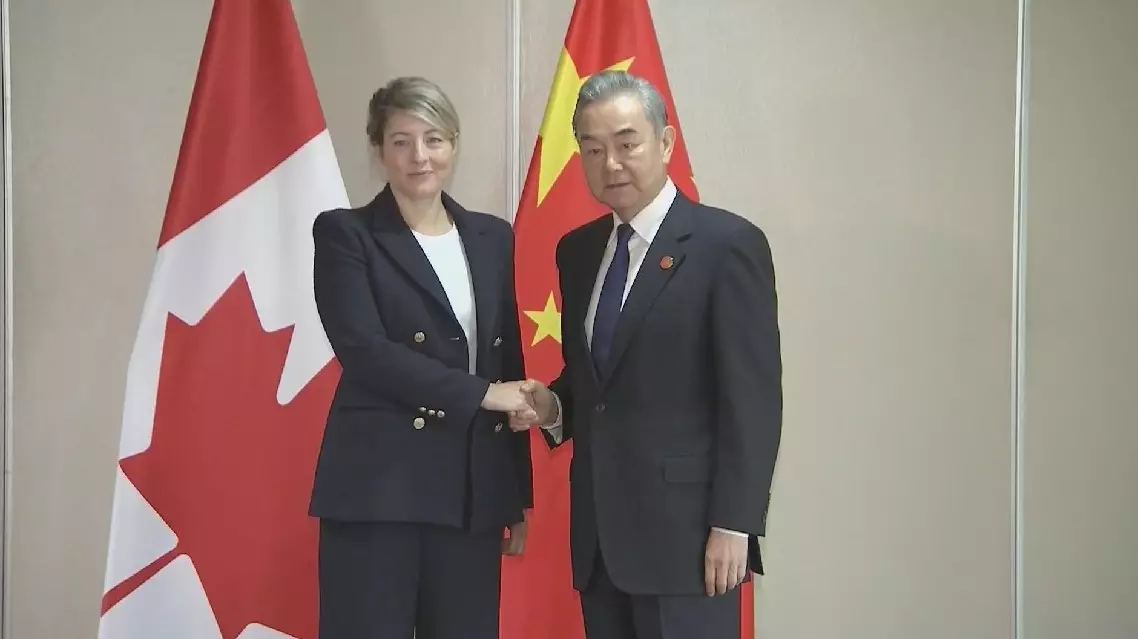
China calls on Canada to lift discriminatory restrictions on Chinese products: FM




